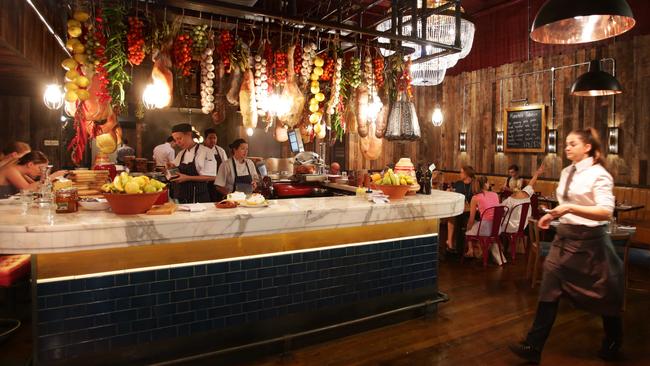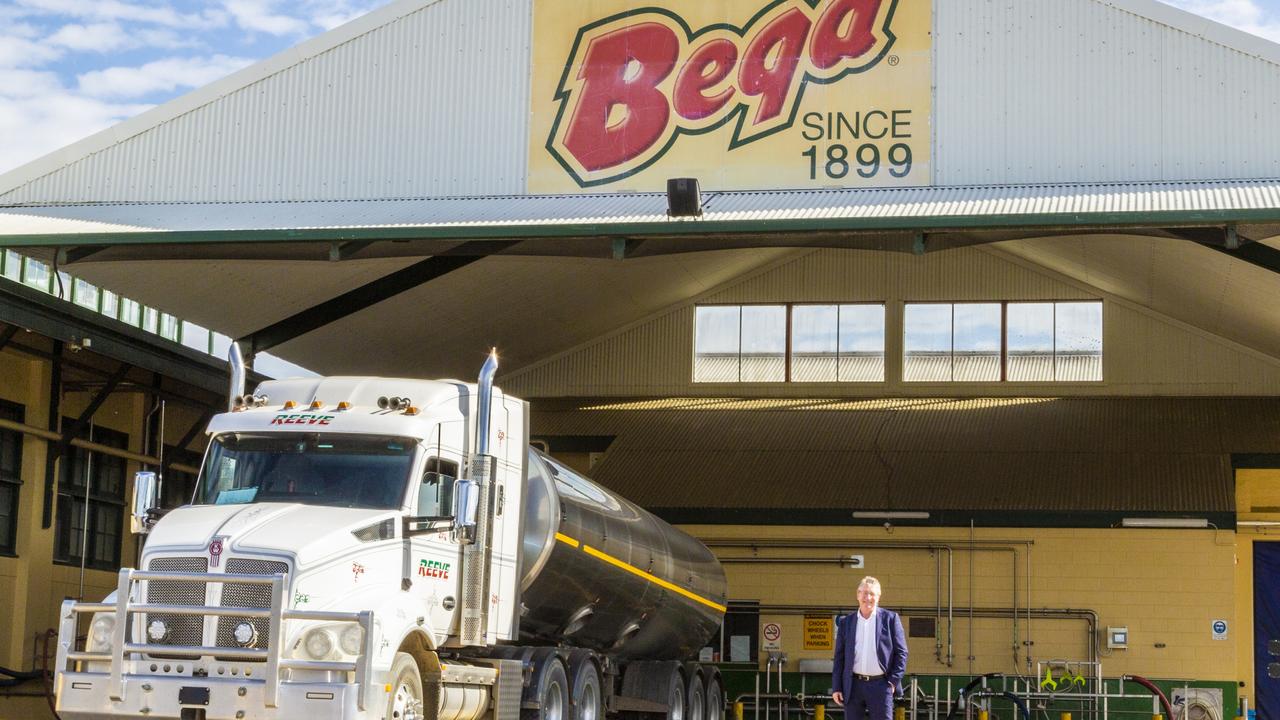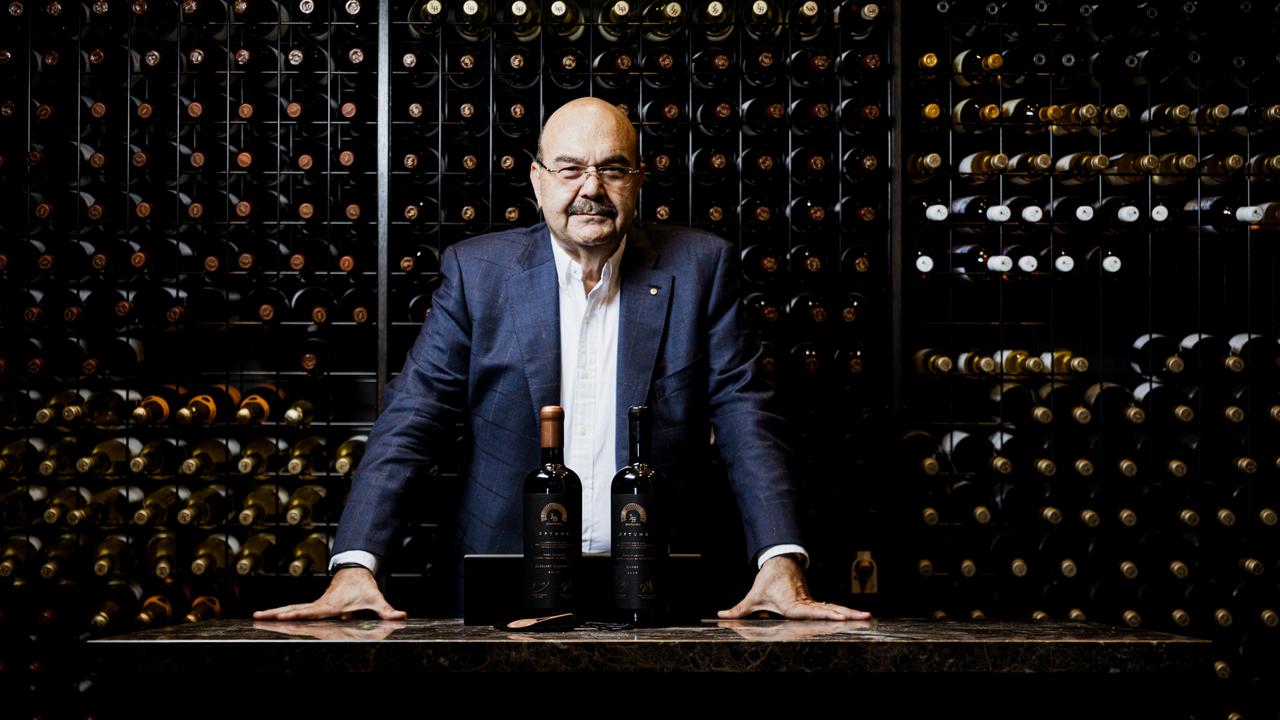Keystone crushed by debt as lenders pull the plug
The boss of failed restaurant operator Keystone group, Richard Facioni, says he is very disappointed with the outcome.

The boss of failed restaurant operator Keystone Hospitality Group, investment banker Richard Facioni, said yesterday the company was making its repayments on $80 million in debt when its lenders, international private equity giants KKR and Olympus, pulled the plug by appointing receivers on Tuesday.
“It was unexpected,” Mr Facioni, who is Keystone’s executive chairman, told The Australian.
He added, however, that Keystone was in breach of its loan covenants and it was “safe to assume” it would not be able to make a $25m payment due to KKR and Olympus today under a restructuring deal agreed in January.
“I expect that factored into the lenders’ thinking,” he said.
Receivers Morgan Kelly and Ryan Eagles, of Ferrier Hodgson, will now attempt to sell Keystone’s assets, which include top Sydney venues The Cargo Bar, Bungalow 8 and Kingsleys, as well as the Jamie’s Italian chain promoted by celebrity chef Jamie Oliver.
This follows Keystone’s failure to sell assets as agreed with the lenders.
Keystone made a $20m loss last financial year on $120m in turnover, but Mr Facioni said the underlying businesses were “trading very well”.
“It’s just carrying too much debt,” he added.
He said Keystone’s management team was “very disappointed” with the outcome.
“Some of the boys here have spent 15 or 16 years building up the business. It’s an emotional time, it’s a difficult time.”
He stressed that it was business as usual at Keystone’s venues, which employ more than 1000 people. “We want all of these venues to be successful going forward,” he said.
Mr Facioni and his fellow Keystone directors, Warren Duncan and Robert Webster, responded to the receivership yesterday morning by appointing voluntary administrators Henry McKenna, Katherine Barnet and Hugh Armenis of Bentleys.
The debt mountain that crushed Keystone was built in August 2014, when the company embarked on an ambitious takeover of Pacific Restaurant Group, which owned the rights to the Jamie’s Italian franchise in Australia and New Zealand.
Keystone was advised on the deal by Mr Facioni, a former Macquarie Group banker who has since moved to the Alceon boutique run by former Babcock & Brown executives Phil Green and Trevor Loewensohn.
“It was a carry-over of a personal engagement I had prior to joining Alceon,” Mr Facioni said.
Southern Cross Austereo boss Grant Blackley also helped with advice on the merger as well as its debt financing, and ran the company for a year as operations were integrated.
The friendly takeover added the hospitality firepower of Adam Heathcote, the “key man” at the Jamie’s Italian franchise, to the weight brought by Keystone’s majority shareholders, the Duncan family, who have been publicans for more than 100 years.
Keystone agreed to pay PRG’s shareholders $27.5m cash for their shares, and funded the offer by borrowing $50m from KKR’s special situations fund and $30m from Olympus’s similar fund.
In a bidder’s statement filed in July 2014, Keystone said it believed gearing levels after the takeover would be “appropriate”.
“The support of the financiers to pay for the PRG shares and to fund the Keystone Consolidated Group going forward reinforces Keystone’s views that the rationale and financial metrics implied by the offer are sensible,” the company said.
However, company documents show Keystone was in breach of its lending covenants, which mandated a maximum leverage ratio, within 10 months of the takeover.
In its most recent annual report, Keystone warned its investors, which include Mr Blackley, that at the middle of last year it had net liabilities of $14m and a working capital deficiency of almost $93m.
While it was able to raise $5m from shareholders in the form of a loan, only the Newtown Hotel was sold for an undisclosed amount to Chris Morris’s Colonial Leisure Group. Keystone had previously estimated it to be worth $9m.
The company also valued Cargo Bar and Bungalow 8, both on Sydney’s King Street Wharf, at a combined $30m and steakhouse Kingsleys at between $7m and $9m.
Mr Facioni said Keystone “tested the market for Cargo Bar”, but decided to keep Bungalow 8 — although it would have sold the latter venue at the right price. This was because the company wanted to retain exposure to King Street Wharf given a looming redevelopment at nearby Barangaroo that includes a new casino built by James Packer’s Crown group.
While there was “a lot of interest” in Cargo, the offers were not at high enough prices, he added. He said there had been discussions with private equity groups over the Jamie’s Italian group, but potential buyers felt it was too small as a stand-alone business.
It is believed KKR and Olympus are not interested in swapping their debt for equity in a “loan-to-own” scenario but simply wish to recover as much of the $80m as possible.


